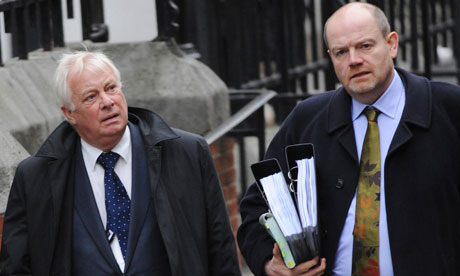In my written comments + docs, I'll use various abbreviations, eg 'para' = paragraph; EAA you should know (EX + TY for the other main assessment criteria); ctee = committee
Some quick points leading off from today's lessons:
RESEARCH/PLANNING PROCESS FOR HOMEWORK ESSAYS:
Make an initial assessment of what the Q is asking; what sub-topics/themes/elements it includes
Do an
initial brainstorm of what points you might explore to answer this Q
Consider what resources you can access: lesson notes, blog (its archive, links lists etc), handouts (prompt Q handout is huge - use it), books, Guardian themed sections (PCC, press + privacy, Leveson etc), googling [if you come across useful resources that you've not seen linked on my blog please pass on a link/info]
Start reading + annotating/note-taking
Reflect and decide on the 4/5 (maybe 6) major points you'll explore (you can squeeze some more into a final para or 2)
Take a separate sheet for each, add your sub-heading + review your notes, adding/pasting relevant points from each of your sources into each point. There will be some overlap here - which is good: this helps to plan out a flowing essay structure
Make sure you've got some positive and negative points
Make sure you've got specific, detailed example(s) to back up your argument (EAA)
Have you highlighted any TY in each point? Will your notes be sufficient to score highly on this? Look at your long handout for MANY egs of TY, and how to apply it
You may already have spider-planned. Even so, I generally find it useful to write out a full plan as brief bullets, identifying points I'll explore in more detail (eg, simply 'Desmond' would denote the whole issue of his withdrawal from PCC). Again, try to organise your major points so that one leads logically onto another
ESSAY INTRO MUST:
Discuss the Q set
Explain/define any terminology (or bodies: PCC) in title
This may require some context (or you may keep this for 2nd para)
Vitally, set out, very concisely, the structure you will follow for this essay (your main points/themes, stressing that you will explore pos + neg/supportive + critical arguments)
SOME THEMES SUGGESTED IN TODAY'S LESSONS:
you could break any one of these down into many further points
PRESS DISDAIN PCC (Murdoch apologised to Morgan for having to bother him with PCC ruling; Desmond; simple repetition of breaking EdCode)
MEYER/POSS PCC REFORMS
PRIVACY (Assange eg; caused Calcutt; backbench 80s bill leads to Calcutt; web issues; superinjunctions + wider law; Press Council's poor record)
PCC's COMPLAINT CRITERIA (espec on 3rd party: Moir case; PCC user stats + opinion polls)
COURT/LAWS (libel law; privacy; superinjunctions; PCC failing if these laws used?)
ACCURACY/POWERS [2 big points that could be split] (routine inaccuracy on EU, Islam, single mums, immigrants, benefits claimants, immigrants etc: DMail cancer song; weakness of punishments - correction prominence policy; compare to OfCom - leads to self-reg v statutory reg)
PCC FUNDING/MEMBERSHIP (funded by press = bias? BUT also zero cost to taxpayer [contrast to OfCom]; Desmond; MUST cite PressBOf; 1963: PC just 20% lay members, PCC now majority [BUT who chairs key ctees?])
OFFICIAL REPORTS/RESPONSE (Leveson!!! rem: MUST include some speculation on FUTURE reg; Tom Watson MP + his book: initimdation of MPs by NewsInt; Calcutt's 93 review + 3rd RCP 1977 ignored: why?)
SOME FRESH LINKS:
Tom Watson MP says News Corp acted like a shadow state;
Tom Watson's new book: summary of his key claims;
Short but devestating analysis of Watson's claims;
How Watson was pressured to stop pushing on NewsInt;
50 new claimants against NewsInt in past 3 months listed;
Consider why convergence makes PCC insufficient:
M.Moore argues Fox News will be caught up in Hackgate eventually;
Murdoch's decline by Dan Sabbagh;
DPP line on public in defence? Use your common sense (ie, vague + ambiguous; subjective + open to interpretation on a case by case basis) [by Peter Preston];
Latest ABCs, incl pic of Sun on Sunday front page: footballers + prostitutes story;
Those Feb 2012 PCC stats - look closely at clause cited + summary (eg many just tagged as '3rd party' + so ignored);
ROYALS:
Satire report on allegations on P.Charles' sexuality (+ how it can't be reported openly);
Sky on 'From Squidgy' to 'Camillagate';
Squidgygate [wiki];
Camillagate + Qs it raises for Murdoch;
David Scarboro: vid tribute to actor who committed suicide after press hounding (during PC era);




